Ethiopia
Ethiopia under Prime Minister Abiy Ahmed made the biggest democratic gains in the world in 2018, this is according to a recent report released by Freedom House – a U.S.-based organization.
The Freedom in the World 2019 report noted that Ethiopia, though still not free democratically made the largest one-year gain in improvements in conditions for political and civil liberties. The other big mover was Malaysia, the report added. Freedom in the World 2019 assessed 209 countries and territories around the globe. It assessed 49 African countries in total.
Africa relevant statistics
Countries assessed = 49
Population size = 1.1 billion
Free countries = 9 (18%)
Partly free countries = 19 (43%)
Not free countries = 21 (50%)
What the report said about Africa’s best democratic performers
In Ethiopia, the monopolistic ruling party began to loosen its grip in response to three years of protests, installing a reform-minded prime minister who oversaw the lifting of a state of emergency, the release of political prisoners, and the creation of space for more public discussion of political issues.
Angola and Ethiopia — both historically closed countries ruled by autocratic leaders — experienced dramatic openings in 2018.
While their new leaders, President Joao Lourenço and Prime Minister Ahmed Abiy, respectively, each emerged from the countries’ dominant political cliques, both have expressed a commitment to important reforms.
If the new administrations are able to dismantle the repressive legal and political frameworks they inherited, they may serve as important models for their neighbors and significantly improve the democratic trajectory of the continent as a whole, the report read in part.
The only other African country that made progress over 2018 was The Gambia which is into the third-year of post-Yahya Jammeh dispensation. The Adama Barrow-government is seeking to right the many democratic wrongs reported under the exiled leader.
Africa’s worst democratic performers
At the opposite end of the ladder, Tanzania despite being classed ‘partly free’ democratically, retrogressed over the past year with -7 score along with Venezuela, the worst score above both being Nicaragua.
The report also slammed among others, Burundi, Togo, Benin, Cameroon and Senegal – all these countries recorded minuses in 2018. It mentioned Zimbabwe, Uganda as other sub-Saharan African nations where democracy was under threat.
“Space for political activity continued to close in several countries, notably Tanzania, where the government arrested prominent opposition leaders, stifled anti-government protests, and pushed for legislation that further strengthens the ruling party’s stranglehold on domestic politics, it said.
“In Uganda, long-ruling president Yoweri Museveni’s administration sought to constrain dissent by implementing new surveillance systems and instituting a regressive tax on social media use.
“Senegal’s reputation as one of the most stable democracies in West Africa was threatened by new regula tory barriers that could limit the opposition’s participation in upcoming elections.
“The arbitrary detention and prosecution of a potential opposition presidential candidate cast doubt on the independence of the judiciary and the government’s commitment to the rule of law.
Methodology of Freedom House
Freedom in the World 2019 evaluates the state of freedom in 195 countries and 14 territories during calendar year 2018. Each country and territory is assigned between 0 and 4 points on a series of 25 indicators, for an aggregate score of up to 100.
These scores are used to determine two numerical ratings, for political rights and civil liberties, with a rating of 1 representing the most free conditions and 7 the least free. A country or territory’s political rights and civil liberties ratings then determine whether it has an overall status of Free, Partly Free, or Not Free.
Freedom in the World methodology The methodology, which is derived from the Universal Declaration of Human Rights, is applied to all countries and territories, irrespective of geographic location, ethnic or religious composition, or level of economic development.
Freedom in the World assesses the real-world rights and freedoms enjoyed by individuals, rather than governments or government performance per se. Political rights and civil liberties can be affected by both state and non-state actors, including insurgents and other armed groups.



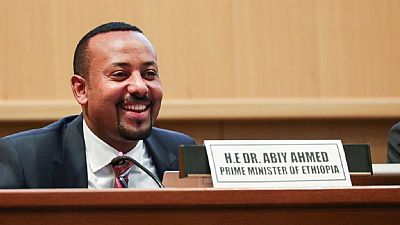

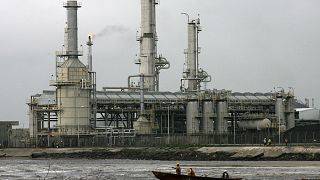
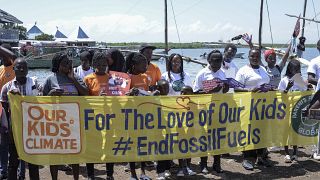
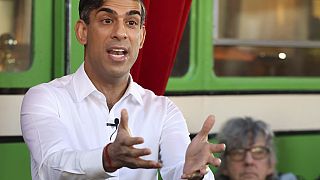
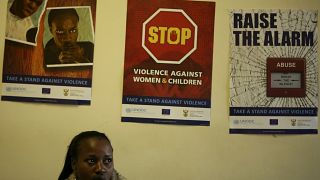
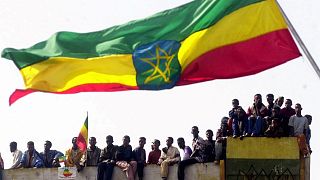
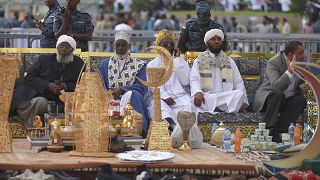
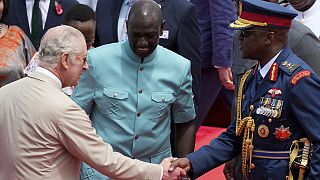
02:47
Unraveling the political threads: Inside South Africa's Complex Election Landscape
01:19
Haiti: transitional council members announced
00:59
Donors pledge $630 million for conflict-hit Ethiopia
Go to video
Hellen Obiri claims back-to-back Boston Marathon titles, leading Kenyan women's podium sweep
01:04
Kenya proposes treaty to ease Somalia-Ethiopia tensions
01:57
South Sudanese parties adopt code of conduct ahead of December elections